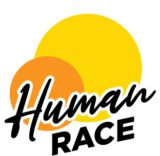I have been fortunate. I have been surrounded by inspiring role models throughout my life – a great-granduncle who campaigned against racism in New Zealand, an aunt who passionately supported the fight against apartheid in South Africa, and above all a mother who saw famine in Ethiopia and pleaded with the people around her to act. These people all laid the foundations for me as a boy, a child of Asian descent growing up in Leicester in the United Kingdom, keen to stand up against injustice but also burdened by a simple need to fit in.
I learnt the truth at 17, that life’s defining moments are laid out by the things you choose to do, especially when you choose not to do anything.
A special education class had just ended and students were streaming out of a classroom at college. One of the students, who had Down Syndrome, had his bag snatched and thrown into a bin. He was taunted and persuaded to dive in and pick it up – much to the laughter of the students around him.
So what did I do? For all my bravado and the principles I believed that I stood for in support of social justice, I chose to look away, keep quiet and say nothing. As I recount the incident, it pains me. My failure to stand up embarrasses me to this very day.
We all have different motivations for everything we do and that incident alone certainly isn’t the reason I decided to join the non-profit sector but I guess looking back on it, my frustrations with myself and my failure to act has spurred me on. When I roll it all up, when I merge the bravery and determination of all my role models with the regret I feel about what happened, I realise these experiences, good and bad, eventually led me to work for SCOPE UK, The Prince’s Trust, and ultimately here within Special Olympics where I am now tasked with promoting inclusion for people with intellectual disabilities (ID).
People with ID remain one of the most underserved populations globally. There is no place in the world that can truly claim to have integrated them in all aspects of life, or that has created a completely inclusive environment where they are able to achieve their full potential.
While educational, systemic and societal changes are needed to achieve the Special Olympics vision of inclusion in terms of healthcare, employment and other aspects of life, the first step starts with each and every one of us.
To have the courage to reach out and be a friend, to realise that we are more alike than different is what it is all about for me. I remember an incident during my early days at Scope. My colleagues and I all went out to lunch and I sat next to someone called Dave, a colleague with cerebral palsy. For the longest time, I didn’t speak to him. I was just so nervous that I might not understand what he was saying. But all it took was an irreverent moment of jest when someone mentioned that they never could understand Dave and learning of our shared love for Liverpool FC that my self-imposed barriers came down. I realised all I needed to do was be myself and have the courage, to be honest. After all, Dave was just being himself, the least I could do was simply be the same. Another role model, I guess.
On the subject of courage, one of my greatest sources of inspiration is athlete leader Hanako Sawayama, who is now a dear friend and colleague. I met her when I first joined Special Olympics Asia Pacific in 2013. Back then, she was extremely shy and timid. I’m blown away by her strength to step out of her shell, and amazed by how much she has grown. Through opportunities offered in Special Olympics sports and leadership programmes, she is now unafraid to speak her mind, and has become a strong advocate for the rights of people with intellectual disabilities. Hanako is a daily reminder of why we exist as an organisation, and how our work can change lives.
The volunteers and coaches I’ve met also remind me about how our work can have a life-changing impact. Arpita Mohapatra is a Special Olympics coach based in India. She has been actively seeking out children with intellectual disabilities in remote villages to teach them swimming because the area where she lives is flood-prone and tragic drownings are a common occurrence. Through her swimming lessons, she has not only given them confidence through sports, she has equipped them with a life-saving skill.
People like Hanako and Arpita sum up the Special Olympics movement for me. They are what make it so much more than a sports organisation.
My hope is that everyone will begin to see Special Olympics in the same way that I do – not simply as an organisation or even a movement, but a ‘place’ that accepts people for being themselves, delights in all of our gifts and talents, and gives everyone the chance to achieve their full potential. I know this is a Utopia but I’m an idealist, not an opportunist and true, honest inclusion is worth standing for.
The work ahead of us is immense. We need the world to understand that with or without a disability, we have the same human needs and wants. Everyone deserves an equal chance to lead a fulfilling life. All it takes is for each and every one of us to muster that little bit of courage and conviction to do the right thing. Utopia? Maybe. But I’m willing to be brave in the attempt to create it.
Dipak Natali is the President and Managing Director of Special Olympics Asia Pacific.

